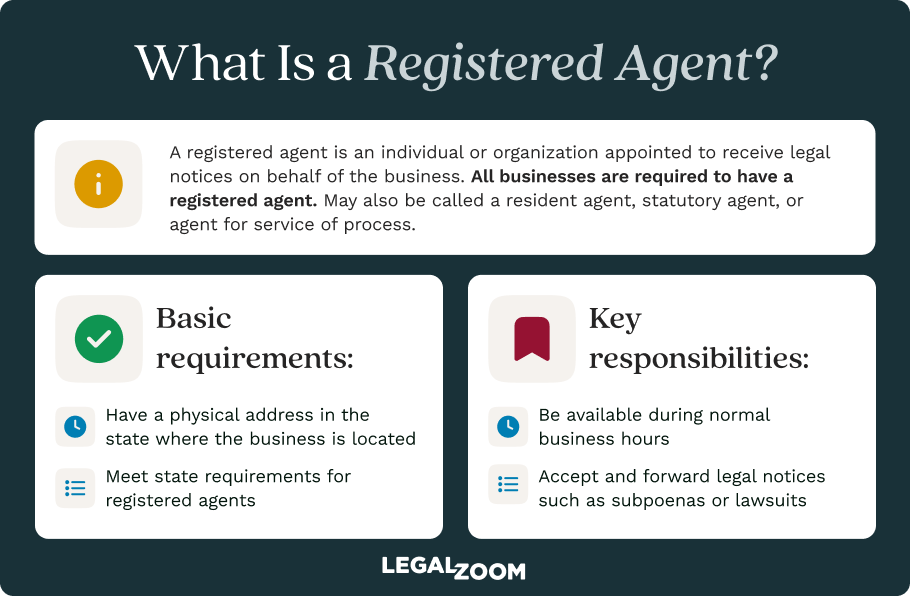Arizona is a great place to start an LLC, with 678,357 small businesses employing 1.1 million people. Professional services, real estate, construction, and transportation and warehousing are the top industries in the state for small businesses. If you’re one of the many entrepreneurs looking to set up a limited liability company in the Grand Canyon State, you’ll need to get official with the state via Arizona LLC registration.
You’ll need to follow specific steps to ensure proper formation, from naming the LLC to securing an Arizona business license and local permits. Follow along with this comprehensive guide to how to start an LLC in Arizona.
Why choose Arizona to start an LLC?
Arizona is a fast-growing state with a great business community and business-friendly laws. AZ has a small business growth rate of over 4%—the seventh-highest in the United States. Pinal County leads the way with 9.46% growth.
Casa Grande, Queen Creek, and Maricopa are three of the fastest growing cities in the country. These bustling areas are rich with opportunity for new businesses to establish and grow along with the community.
Whether you’re starting a restaurant in Tuscon, expanding your tech company to a new office in Phoenix, or just looking to add an extra layer of liability protection to your graphic design side hustle in Gilbert, Arizona offers strong local markets and plenty of room to grow.
The benefits of creating an Arizona LLC
Overall, LLCs offer personal liability protection (unlike sole proprietorships), flexible management structures, and pass-through taxation. This type of business entity also has fewer formal requirements than corporations, which makes them ideal for small businesses that want to protect their assets with less administrative work.
Arizona’s business-friendly laws afford a few specific benefits to AZ LLC owners:
- No annual report requirement. Unlike most states, Arizona doesn’t require you to file an annual report for your LLC, which means less paperwork and fewer deadlines to track.
- Flexible tax benefits. You can choose how you want your LLC to be taxed—as a sole proprietorship, partnership, or corporation—and Arizona doesn’t charge a franchise tax.
- Low state fees. Arizona LLC registration is one of the most affordable in the country. It only costs $50 to file your articles of organization with the Arizona Corporation Commission.
- Flexibility in ownership and management. You can run your LLC by yourself or with others, and you don’t have to follow a strict structure like a corporation does.
- Strong support for new businesses. Arizona offers resources like the Arizona Commerce Authority and local chambers of commerce to help LLC owners. Plus, there are a variety of small business grants specifically aimed at helping Arizonans.
Starting a business takes courage. LegalZoom makes sure the legal details don’t stand in your way, from the day you register until the day you retire.

How to start an LLC in Arizona: 6 easy steps
To start an LLC in Arizona, you’ll need to follow a few key steps to get legally compliant and help your business run smoothly. Here’s everything you’ll do in order to start your LLC.
1. Name your LLC
You'll need to choose a name to include in your articles of organization before you can register your limited liability company with the Arizona Corporation Commission (ACC). Names must comply with Arizona's naming requirements and be distinguishable from other entities filed with the ACC and Arizona Secretary of State (SOS).
The following are the most important requirements to keep in mind:
- Your Arizona business name must include the words limited liability Company, limited company, LLC, L.L.C., LC, or L.C.
- Your name must be different from existing businesses in Arizona. You can do a search through the ACC website to determine if a particular business name is in use. It’s also wise to search for similar-sounding names (e.g., Phoenix Pharmacy vs. Phoenix’s Pharmacy) to rule out any close matches.
- The business name cannot contain words that imply association with a government agency (e.g., State Department, CIA, FBI, Treasury, etc.)
- Certain protected words (e.g., bank, lawyer, attorney, credit union, etc.) may require written approval and the appropriate professional license.
For more information, check out the complete listing of Arizona LLC naming requirements or contact the Arizona Commerce Authority. In addition, you might consider reserving your business name through the ACC to hold it for up to 120 days. This might be a good idea if you’re not quite ready to establish your LLC but want to prevent others from grabbing the name, though you’ll need to pay a $45 fee.
To make sure your name is unique, conduct a name search with the Arizona Secretary of State using LegalZoom's free name check tool.
Free Arizona Business Name Check
Use our free name check tool to search the Arizona Secretary of State database and see if your business name is available.
By clicking "Check Availability," I agree to LegalZoom's Terms of Use. This search is a preliminary check of state databases and does not include variations or trademarks. Results do not guarantee name availability or compliance with legal requirements.
2. Choose your statutory agent
Arizona requires you to appoint an in-state statutory agent (called a registered agent in other states) for your LLC. The agent can be a person (including yourself or an employee of your LLC) or an entity that offers a registered agent service, provided they meet the following criteria outlined by the ACC:
- If an individual, the agent must have an address in Arizona and be at least 18 years old.
- If an entity, the agent must be authorized to transact business and have an address in Arizona.
- The agent must be on-site and available to accept documents during regular business hours.
- The agent must accept the role by responding to an email from the ACC after the LLC is formed.
A statutory agent receives service of process and other official legal documents and notices on behalf of your LLC. While there’s no fee to appoint an agent, you’ll still need to pay for their services if you work with a third party, which may cost between $50 and $300 annually in Arizona.

3. Prepare and file articles of organization
The articles of organization is a document that officially establishes your LLC in Arizona, and you’ll file it with the ACC. This process can be completed online through the ACC’s eCorp website or by mail. You'll need the following information with either method:
- Your AZ LLC name and address
- Type of LLC (professional or regular LLC)
- If a professional LLC, description of services offered
- The name and address of your statutory agent
- Management structure (i.e., manager- or member-managed LLC)
- Signature of the person forming the LLC
Once you file your articles, the ACC will review the filing and issue a decision. If the articles are approved, the LLC becomes a legal business entity, and the state will issue a certificate. Eventually, you’ll use this to apply for and obtain a federal employer identification number (EIN), business licenses, and business bank account.
4. Create an operating agreement
Arizona LLCs are not required to file an operating agreement, which outlines the way your LLC will conduct business. Still, it’s an invaluable component of a successful business, so you should strongly consider creating one.
The LLC operating agreement might include the following:
- Your AZ LLC's name and principal address
- Name and address of your statutory agent
- Purpose of the business
- The way profits and losses will be divided
- Procedure for admitting new members, as well as outgoing members
- Management structure of the LLC
- Indemnification and liability clauses
Having a clear, professional operating agreement is helpful for various reasons, especially to resolve disputes that may arise over financial agreements and other potential litigation. Without an agreement in place, Arizona courts make determinations based on state law, not necessarily what is in the best interest of the LLC and its members.
Building a business is enough work as it is. We'll help you start your LLC with confidence.

5. Complete publication requirements
Arizona requires most LLCs to publish a notice of formation for three consecutive weeks in an approved newspaper in the county of your LLC's statutory agent. A notice of formation will list the following:
- The LLC's name
- The agent's name and address
- The LLC's principal business address
- Whether the LLC is manager-managed or member-managed
- The name and address of the LLC's manager or each member of the LLC
Afterward, it’s advisable to file an affidavit of publication with the ACC to confirm you completed the publication requirement. Note that LLCs formed in Maricopa or Pima counties are not required to meet publication requirements.
6. Get an employer identification number and open a business bank account
An employer identification number (EIN) is a unique nine-digit code assigned by the Internal Revenue Service to identify your LLC for tax purposes. While not always required for Arizona single-member LLCs with no employees, obtaining an EIN is generally recommended to keep your personal finances and business debt separate.
An EIN will help you do the following
- File and manage taxes at the state and federal levels.
- Open a business bank account.
- Hire employees.
You can obtain your EIN by mail or online through the Internal Revenue Service or pass on this task to an EIN filing service. Once you’ve secured a federal tax identification number, you can start to look into business accounts for your LLC. You can typically find options through major banks (i.e., Wells Fargo, Chase, or Bank of America), as well as regional banks or local credit unions in your area.
Cost to start an LLC in Arizona
All things considered, you’ll pay at least $50 for Arizona LLC registration. However, the total cost of creating an LLC in Arizona can increase to $1,000 or more, especially if you need specialized permits.
Immediate formation costs
- Filing fee (articles of organization): $50 ($85 for expedited processing)
- Statutory agent: $0 to $300, depending on whether you use professional services
- Name reservation (optional): $10 ($45 for expedited processing)
- Publication costs: $30 to $300, depending on the newspaper (note that this isn’t required in Maricopa and Pima counties)
Additional costs
- Business licenses and permits: Varies—for example, the statewide Transaction Privilege Tax (TPT) license costs $12, whereas a mobile food vending permit in Phoenix costs $350
- Business insurance: $70 to $100 per month, depending on business needs and coverage type(s)
- Filing a trade name (DBA): $10 ($45 for expedited online filing)
- Certified copies of documents: $10 to $15, depending on the requested documents
You might also pay fees for any corrections or revisions you submit to the ACC, so be sure to check the schedule of fees for an accurate estimate.
Maintaining your LLC in Arizona
Maintaining an LLC in Arizona is a little bit easier than many other states. Here’s what to be aware of.
Making changes and amendments
Unlike many states, Arizona doesn’t have annual LLC filing fees or reporting requirements. However, if you make updates to your business, such as changing the name, you must file an amendment with the Arizona Corporation Commission. It’s good practice to regularly review and update your LLC’s information with the ACC as needed.
In the event you need to change statutory agents, you’ll need to submit a statement of change for $5 (or $40 for expedited processing). Remember: your LLC must maintain a statutory agent in Arizona at all times.
Business licenses and permits
Arizona doesn’t require a general state business license. However, certain types of businesses may need Arizona business licenses, including the following:
- LLCs selling certain products or services in Arizona may need to apply for a Transaction Privilege Tax (TPT) license, which is a tax on the business for certain types of transactions.
- Food service businesses need health permits for both the facility and the food handlers.
- Businesses that sell liquor need a license from the Arizona Department of Liquor License and Control, as well as local licenses.
- Child care businesses need a license from the Arizona Department of Health Services.
Many cities and counties also require local licenses. For instance:
- Maricopa County (which includes Phoenix, Mesa, Scottsdale, and Tempe) requires food trucks, restaurants, caterers, and businesses dealing with water or air quality to have a license from the Maricopa Environmental Department.
- Pima County (which includes Tucson and Marana) requires food and beverage businesses, tattoo shops, and daycare facilities to have a license from the Pima Health Department.
- The city of Prescott requires a Peddler/Solicitor License for those making sales door-to-door.
You can check with the Arizona Commerce Authority to identify the exact state or local licenses you’ll need. If you’d like assistance, LegalZoom can look into all these licenses and permits for you and identify which ones your business needs to operate.
Taxes
As pass-through entities, LLC members typically report income taxes on their personal returns—unless they elect to be taxed as a corporation. However, if you sell goods or services subject to the Transaction Privilege Tax, you’ll need to pay those taxes through AZTaxes.gov.
If you have or plan on hiring employees, you’ll need to register with AZTaxes.gov using your EIN to set up employment tax withholding. Additionally, you must register with the Arizona Department of Economic Security (DES) for unemployment insurance tax. It’s often smart to consult a professional for legal or tax advice.
Starting a business takes courage. LegalZoom makes sure the legal details don’t stand in your way, from the day you register until the day you retire.

Mistakes to avoid when creating an LLC in Arizona
When starting your LLC, it’s easy to overlook a few important details. Avoiding these common mistakes can save you time, money, and stress down the road.
- Choosing a business name that’s already claimed. Filing your paperwork with a name that’s already taken will delay your approval and may force you to start the process over.
- Skipping the statutory agent requirements. If you don’t list a valid Arizona statutory agent, the state will reject your filing and you won’t be able to form your LLC.
- Forgetting to publish your LLC. If you skip the publication step, your LLC could fall out of compliance and run into problems with contracts, banking, or state records.
- Using a personal bank account. Mixing personal and business money can create tax problems and make it harder to protect your personal assets.
- Not staying organized. Keep your articles of organization, EIN, operating agreement, and proof of publication together in a safe place so you can find them when you need them.
Arizona LLC FAQs
Starting a business comes with a lot of questions. Here are answers to some of the most common concerns business owners have about how to start an LLC in Arizona.
How much does it cost to create an LLC in Arizona?
It costs at least $50 to file the formation paperwork for an LLC in Arizona. Other startup costs can include fees for a statutory agent, publication, name reservations, and DBAs. You might also spend more on business licenses, permits, or insurance, depending on your industry and needs.
What is an Arizona statutory agent?
A statutory agent (also called a statutory agent) is a person or business that accepts legal and official documents on behalf of your LLC. They must have a physical address in Arizona and be available during regular business hours.
Can I form an LLC in Arizona if I live out of state?
Yes, you can live in another state and still form an LLC in Arizona. You just need to list a statutory agent with an Arizona address.
Is publication required for a new LLC in Arizona?
Yes, most LLCs in Arizona must publish a notice in an approved newspaper within 60 days of formation. But if your business address is in Maricopa or Pima County, you don’t have to.
Can I form an LLC in Arizona online?
Yes, you can file your LLC paperwork online through the Arizona Corporation Commission. Services like LegalZoom can also help you file quickly and correctly.
Can my LLC operate under a different name in Arizona?
Yes, you can use a different name by registering a DBA, also called a trade name, with the state. LegalZoom offers DBA registration services to make the process simple, and you can also check out our guide to filing a DBA in Arizona to learn more.
Can an LLC in Arizona have multiple owners?
Yes, your LLC can have one or many members. Arizona law allows single-member and multi-member LLCs.
Should I use an LLC formation service?
If you’re not comfortable filing the paperwork yourself, using an LLC formation service like LegalZoom can help you get everything done correctly and take the work off of your plate. It also saves time and reduces the chance of missing a required step.

Why use LegalZoom for your Arizona LLC?
With LegalZoom, you can save time and launch your LLC in only three steps. Here’s how it works:
- Tell us about your business. Fill out our questionnaire with basic information about your LLC.
- Let us handle the paperwork. Using your answers, we’ll prepare and file all the necessary documents with the Arizona Corporation Commission.
- Get your LLC documents. Once approved, we’ll send you your finalized AZ LLC paperwork along with helpful next steps to get your business going.
The best part is you can start your Arizona LLC with us for as low as $0 + the filing fee of $50. That way, you can focus less on the paperwork and more on setting up your venture to succeed in the Grand Canyon State.
Ready to form an LLC in Arizona?
If you’re ready to start an LLC in Arizona, LegalZoom can help. Our affordable LLC formation plans include a name check and your articles of organization, and you can choose additional services like operating agreements. If you’re not quite ready yet, that’s okay too—we’ll be here whenever you are.
Start an LLC in Any State
Miles Almadrones contributed to this article.




